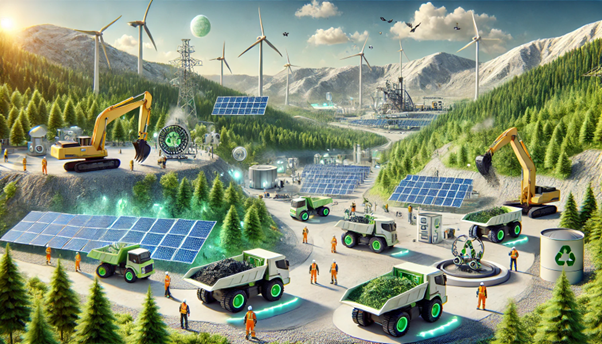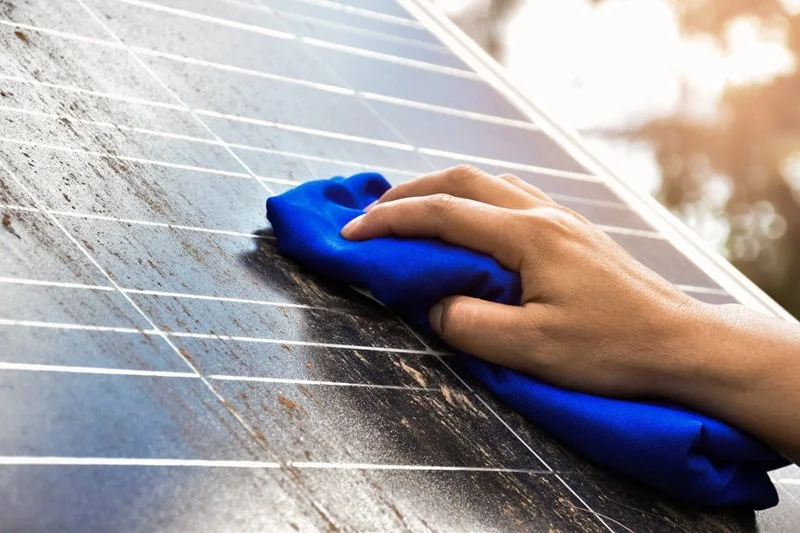Powering Your Home the Green Way: Exploring Renewable Energy Options
/As the climate crisis intensifies, President Biden's Investing in America Agenda aims to drive a clean energy revolution. This initiative, backed by the Inflation Reduction Act and Bipartisan Infrastructure Law, is spurring historic levels of private investment in the United States. It is bringing manufacturing back to America after decades of offshoring and creating good-paying, union-clean energy jobs nationwide.
While the American dream of a comfortable home is desirable, it should not come at the cost of environmental responsibility, especially given the urgency of the climate emergency. Fortunately, there is a growing shift towards renewable energy sources that can power our lives sustainably without relying on fossil fuels. This article explores two popular options for homeowners – solar energy and heat pumps – and how they can benefit both their wallets and the planet.
Before starting, it’s important to mention that consulting with a professional heat pump or solar panel installer is highly recommended before making a final decision. By doing this and comparing multiple quotes, you can not only get a better understanding of the renewable market but also save money and ensure you’re choosing the best option for your home.
Harnessing the Sun's Energy with Solar Panels
Imagine harnessing the sun's rays to generate electricity for your home – that's the magic of solar energy. Solar panels capture sunlight and convert it into usable electricity through a process called the photovoltaic effect. This clean, renewable energy can then power your lights, appliances, and even your air conditioning system.
In today's rapidly changing energy landscape, fuel prices for gasoline, coal, renewables, and other sources fluctuate constantly. Having access to current price trend information is crucial for both citizens and industry professionals alike. Business people and consumers are better equipped to make informed decisions when they have up-to-date energy pricing data at their fingertips.
To meet this need, the U.S. Energy Information Administration (EIA), a sub-agency of the Department of Energy, collects and disseminates energy data daily. This ensures that anyone interested in energy-related information can access the latest data they require, empowering them to make well-informed choices.
Having said this, we’ve summarized the main benefits of solar panels in the US in the sections below.
Benefits of Solar Panels
When we talk about solar panels, the first thought that comes to mind is linked to the benefits of solar energy, which have been summarized below:
Reduced Electricity Bills: Solar panels can significantly reduce your reliance on the traditional grid, leading to substantial savings on your electricity bills. Over time, the cost savings can even outweigh the initial installation cost.
Increased Home Value: Homes with solar panels are often seen as more attractive to potential buyers, potentially increasing your home's value.
Environmentally Friendly: Solar energy is a clean and renewable resource that doesn't produce harmful emissions, helping combat climate change.
As noted above, solar panels are highly beneficial for the average American household. However, the benefits of solar energy will depend on factors such as the amount of sunlight in your area and the suitability of your roof.
For this reason, to make your life easier and to gather the necessary insight for an informed decision comparing the pros and cons of solar energy, in the following section we have also compiled some of the disadvantages that American homeowners might encounter when it comes to solar energy.
Disadvantages of Solar Panels
Solar panels offer numerous benefits, but they also come with some disadvantages that are important to consider:
High Initial Cost: The upfront cost of purchasing and installing solar panels can be significant, although prices have been decreasing in recent years. The same can be said for solar battery storage systems.
Weather Dependency: Solar panels rely on sunlight to generate electricity, so their efficiency can be affected by weather conditions like clouds, rain, or snow.
Space Requirement: Solar panels require a significant amount of space for installation, which may not be feasible for some properties.
Energy Storage Challenges: Storing excess energy generated by solar panels can be a challenge, especially for off-grid systems that rely on batteries.
Considering these disadvantages alongside the benefits of solar panels can help individuals make informed decisions about whether solar energy is the right choice for their needs.
How Many Solar Panels Do You Need for Your Home?
This depends on several factors, including your average energy consumption, sunlight hours in your area, and the desired level of electricity offset. For a general idea, you can explore online calculators that will give you a baseline estimate of how many solar panels you’ll need.
Things to Consider Before Going Solar:
Roof Suitability: Your roof should have ample south-facing space for optimal sunlight exposure. Additionally, the roof should be in good condition and structurally sound to support the panels.
Initial Investment: Although solar panels can save you money in the long run, the initial installation cost can be significant. Explore financing options or government incentives to make solar more affordable.
Shading: Trees or other obstructions can significantly impact solar panel efficiency. Ensure your roof receives good sunlight throughout the day.
Heating and Cooling Efficiently: The Power of Heat Pumps
Heat pumps offer a versatile and eco-friendly solution for both heating and cooling your home. Unlike traditional systems that generate heat directly, heat pumps work by transferring heat from one location to another. This innovative technology utilizes electricity to facilitate the movement of heat, rather than producing it through combustion.
During the colder months, a heat pump extracts heat from the outdoor air or ground and transfers it indoors, effectively warming your living space. In warmer weather, the process is reversed, with the heat pump removing heat from inside your home and releasing it outside, providing efficient cooling and dehumidification.
By leveraging the principles of heat transfer, heat pumps can deliver heating and cooling capabilities while consuming significantly less energy than conventional systems. This not only translates into lower utility bills but also reduces your carbon footprint, making heat pumps an environmentally responsible choice for maintaining a comfortable indoor environment throughout the year.
Benefits of Heat Pumps:
Energy Efficiency: Heat pumps can be significantly more efficient than traditional furnaces and air conditioners, leading to lower energy bills and reduced carbon footprint.
Year-round Comfort: A single system provides both heating and cooling, eliminating the need for separate units.
Long Lifespan: Heat pumps can last for up to 15 years with proper maintenance.
Disadvantages of Heat Pumps
Climate: Heat pumps are most efficient in moderate climates. In very cold regions, they might require a backup heating system for extreme temperatures.
Installation Cost: While heat pumps can save money in the long run, the upfront cost might be higher than traditional systems. However, government incentives can help offset this cost.
Size and Capacity: Choosing the right size heat pump is crucial for optimal performance. Consult with a qualified HVAC professional to determine the appropriate size for your home.
Going Green Starts at Home
Making the switch to renewable energy sources like solar panels and heat pumps is a great way to contribute to a sustainable future. These technologies offer a chance to reduce your reliance on fossil fuels, save money on your energy bills, and increase the value and comfort of your home. By taking these steps, we can all play a role in creating a cleaner and greener world, one home at a time.
Additional Tips:
Research local solar installers and heat pump contractors to find reputable companies offering competitive prices and quality service.
Take advantage of federal and state tax credits and incentives for renewable energy systems.
Consider combining solar panels with battery storage to maximize your reliance on self-generated electricity.
Spread the word! Talk to your friends and neighbors about your experience with renewable energy to inspire others.
Towards a More Sustainable Future
By embracing these eco-friendly options, we can collectively move towards a more sustainable future. So, why not explore the power of the sun and the efficiency of heat pumps for your home? You might be surprised at how much you can save and how good it feels to go green!
About the Author:
Alejandro has been a copywriter since April 2023 with a keen interest in environmental policy and sustainability. He has an academic background in European and international law and has researched the consequences of the European Green Deal on the EU's general energy policy and on how the EU is adapting to the current climate crisis.









































Sponsored by OpusFlow
France's energy landscape is undergoing a significant shift from nuclear power to renewable energy sources, creating a substantial market opportunity for solar installers. However, this solar boom comes with challenges, like navigating tricky regulations and juggling multiple tools.